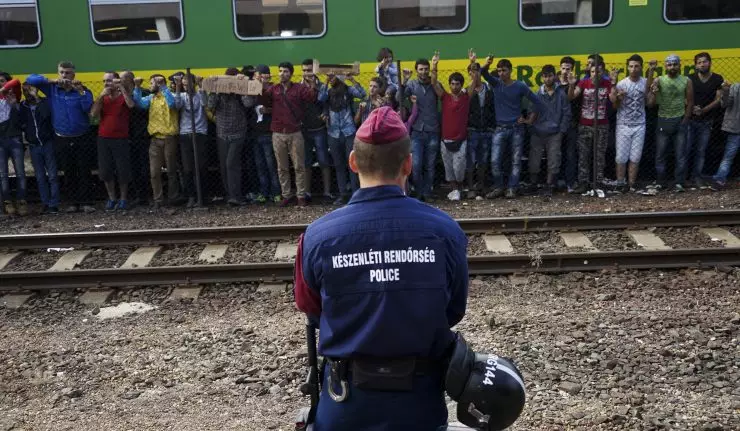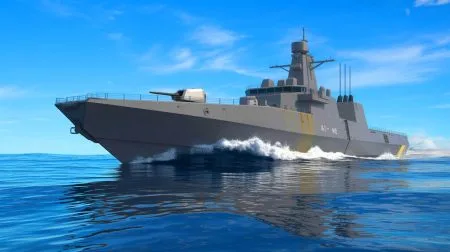Czechia, Prague – Central European nations representatives met again to enforce their plan against mass migration coming to Europe.
On Monday, June 19, representatives from the countries of the Central European Defence Cooperation (CEDC) – Czechia, Slovakia, Hungary, Austria Slovenia and Croatia – met in order to pledge a closer cooperation on tackling illegal migration by the use of common civil and military means.
At the meeting, the participants issued a short declaration which welcomes the Joint Action Plan and calls on the interior ministers of the involved countries to finalize it in the shortest time possible. The declaration takes note of the unified situation assessment, which facilitates the quick and joint mobilization of civilian, police and military capabilities, and states that the most important task is the protection of the external borders of the EU and the elimination of the root causes of migration in the sending countries.
It underlines that the CEDC member countries are willing to further enhance their cooperation and, if needed, to provide mutual assistance in the interest of managing the migration crisis. The declaration also emphasizes the importance of preserving stability in the Western Balkans.
Central Europe stands firmly against migrants redistribution
This streghtened cooperation comes at the same time than some new strong declarations fo Viktor Orbán, as he pursues his fight with Brussels on the 2 years old topic.
Ahead of a two-day meeting in Brussels, the Hungarian Prime Minister told the press that Western European member states want to “get rid of the migrants they unjustifiably let in” by distributing them among countries, such as Hungary, that protected themselves and refused to let in any migrants.
He said he expected member states to reach a consensus on this issue, arguing that most of them agree with a proposal to set up refugee camps along Libya’s northern and southern borders, where economic migrants should be separated from refugees. These camps should also be the place where migrants are registered, subjected to anti-terror screening, he added. Once these procedures are taken care of, only those whose identities are confirmed and who are known not to pose a security risk will be allowed to set foot in Europe, Orbán said.
A position that the Austrian Foreign Minister Sebastian Kurz agrees with. On Tuesday, June 13, he told the press once again his will to make deals with Egypt and Tunisia to bring people intercepted in the Mediterranean Sea in specially-established refugee reception centers set in these countries.
Central Europe will not negotiate on migration, which can be handled if there is a will to do so
In addition to the several declarations of different ministers from all V4 countries aiming to let know western elites that Central European countries prefer to face sanctions than taking in migrants, Central European leaders made clear that no negotiation on the migration topic would take place.
During the oath-taking ceremony of 1,206 border police officers in Budapest’s Heroes Square, Viktor Orbán said Hungary is the first to prove that “migration, so far believed to be uncontrollable, can be controlled, stopped, and reversed”.
PM Orbán also said that unless a country has border control and “brave border police” there will be “no welfare, security, order or development just uncertainty, fear, chaos, anger and trucks driving into the people.”
After the successful popular consultation initiated by the Hungarian government, Orbán has the more arguments against the Western elites’ scheme: “Countries now experimenting with the creation of Eurabia – or with the amalgamation of the remnants of Islamic and Christian culture – will now have to recognize that it’s not only the Hungarian government who don’t want to take part in such experiments, but that the Hungarian people have declared this in every form possible at every opportunity”.
Did you like it? 4.7/5 (26)







Interesting move by the CEDC. How do they plan to address the root causes of migration effectively? 🤔
Great article! Thanks for keeping us informed about the Central European stance on migration. 🙌
Isn’t this approach just shifting the responsibility elsewhere? 🤷♂️
I’m curious, how does this align with EU values on human rights?
Finally, nations taking a stand! It’s about time. 💪
Why doesn’t the EU just support these countries in their efforts rather than criticize them?
Wouldn’t it be more humane to focus on integration rather than exclusion? 😕
Orban’s speech sounds tough, but is it practical in the long run?
Thank you for the comprehensive coverage on this topic!